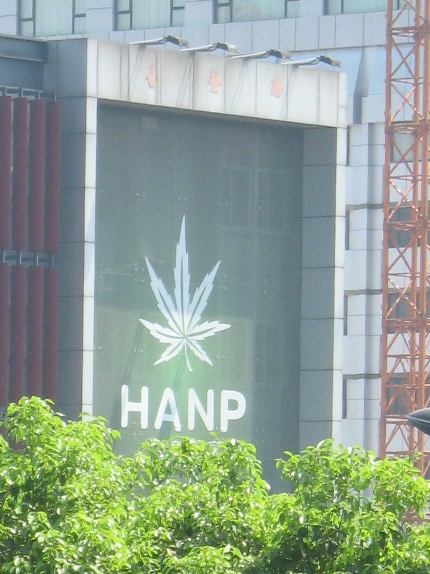Hoisting a couple of pints at Starbucks
Michelle Rafferty at OUPblog has a post on "Why the Trenta?" (1/24/2011), which includes this interesting Google Chat exchange with her friend Gabe, who "specializes in buying and selling unroasted green coffee from all over the world and loves discussing anything and everything related to coffee":
Me: So you work in coffee. What do you think of this whole Trenta thing?
Gabe: Honestly, this is about McDonald’s. They are very successful with their iced coffee and Sbucks is trying to compete. […] They have already lost a lot of customers to McDonalds/ McCafe due to quality and price. McDonalds has better coffee.
Me: Whoa, really?
Gabe: Yeah, McDs has won numerous blind tasting competitions and they have cheaper prices.
Read the rest of this entry »

 Ads for the Confucius Institutes show up all over the Web. At times they seem to be virtually ubiquitous, at least on sites that I visit. One that I've been encountering frequently of late shows a sculpture of Confucius, at the bottom of which are written the words "Kongzi Xueyuan" 孔子學院, translated below that as "Confucius Institute," followed by the words "Teach you pure Chinese."
Ads for the Confucius Institutes show up all over the Web. At times they seem to be virtually ubiquitous, at least on sites that I visit. One that I've been encountering frequently of late shows a sculpture of Confucius, at the bottom of which are written the words "Kongzi Xueyuan" 孔子學院, translated below that as "Confucius Institute," followed by the words "Teach you pure Chinese."

